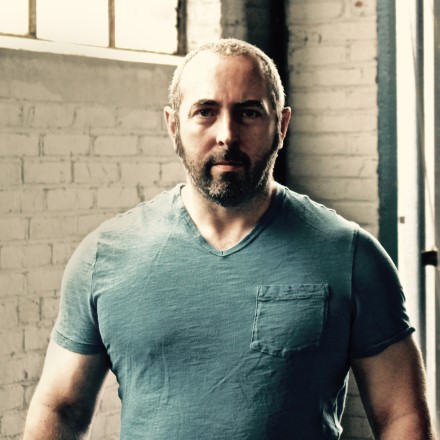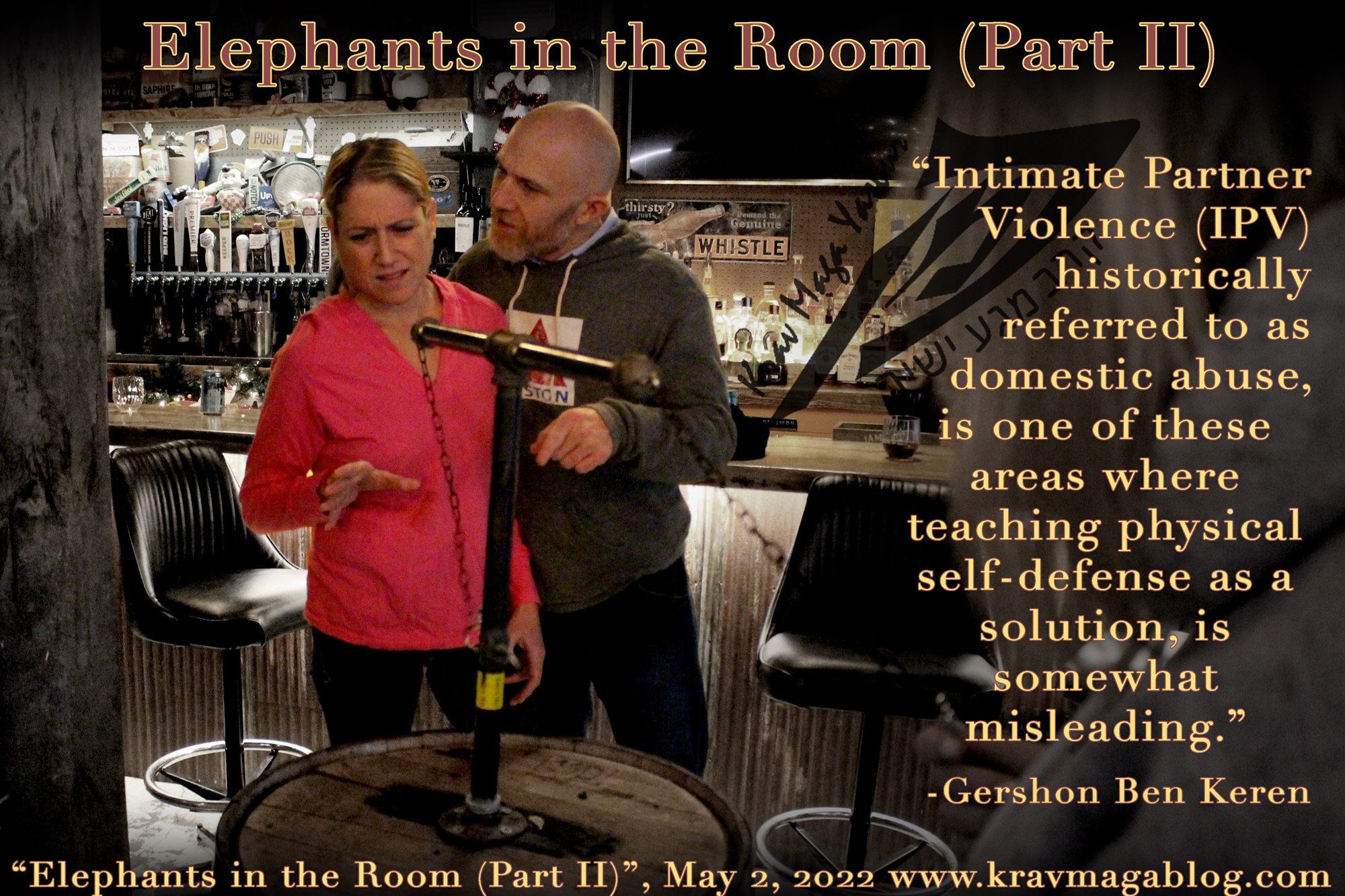In this article I want to look at two common misconceptions that some Krav Maga practitioners and instructors sometimes have. I am using two examples which hopefully can be used to illustrate other related misunderstandings, regarding the application of self-defense solutions. I am not calling out any particular instructors or associations (as rarely does this have any constructive purpose), but rather commenting on things that I have noticed over the years will crop up on social media, posts, and comments etc., by many different individuals and practitioners etc. For some practitioners and instructors these things may represent an elephant in the room, so to speak i.e., they are things that are obvious, but there is an uncertainty as to whether they should be pointed out, as they could be seen to undermine the validity of Krav Maga, and what they teach and practice etc. I don’t believe this is the case, and I think its important to recognize limitations, and when/where things are not applicable, and where other – different – approaches may be more suitable; also acknowledging that as individuals we are limited by our knowledge and experiences and there may be areas of violence, which are not in our wheelhouse etc. We all have areas we are informed, educated and/or have experience in, and those where we are not.
When people are into something, they often think that whatever it is they’re enthusiastic about, is the answer and solution to everything. I remember once getting into an argument with a yoga instructor, because they were telling me that I should stop running and just do yoga instead, because it was an equally good cardiovascular workout. There are things that yoga is good for, there are things that running is good for etc. but they are not directly interchangeable. Krav Maga or any other physical martial arts/self-defense system is not a solution to every type of violence, and I don’t mean because it lacks certain techniques, or doesn’t focus enough on fighting skills etc. Intimate Partner Violence (IPV) historically referred to as domestic abuse, is one of these areas where teaching physical self-defense as a solution, is somewhat misleading. Whenever there is an existing relationship between two individuals, whether it is between partners, and or other family members, such as parents/guardians and children, violence becomes extremely complicated, due to the potential need to continue the relationship, even if that involves maintaining it in the short-term, whilst an exit-strategy is being enacted e.g., saving money so that children can be provided for after the partner is able to leave etc. It may be satisfying to think of an abused partner fighting back against the person who has been victimizing them for a number of years etc., but without considering the “what happens next”. part of things, after the physical encounter has ended, trying to promote Krav Maga or any other system, as a solution is both naive and potentially dangerous. It is also to a degree patronizing to the abused party, who has in all likelihood developed their own survival strategies over the years, for minimizing and dealing with their abuser, as well as minimizing the psychological, and emotional component of abuse, which a large percentage of those victimized state as being far more painful than the physical abuse. I lack the experience, education, and qualifications to be able to help any traumatized individuals and/or those who are involved in abusive relationships, so I don’t. I do try and teach people how to recognize abusive individuals and the early warning signs of unhealthy relationships etc., but if someone is in an existing, and established relationship, despite from an academic perspective understanding some of the dynamics at play, neither I, nor what I teach, is the solution.
To get a technique to work you need fighting skills, however there is often a mistaken belief within certain Krav Maga communities that aggression can be used as a substitute and/or a shortcut when learning how to defend yourself. Whilst an aggressive mindset is an important factor when learning how to fight, it does have its limits. One is that you may meet someone who has a greater level/degree of aggression than you can muster. None of us should fool ourselves that simply hitting the pads as hard and frantically as we can whilst screaming is a true measure of our levels of aggression. There are individuals who have been conditioned from a young age, sometimes deliberately but always inadvertently, to survive at all costs, without any inhibitions, to the point where this is their natural and default way of thinking. For most of us, we take our survival for granted e.g., I have gotten much “softer” as I’ve gotten older, and further removed from the years where I was bullied, and/or when I worked as door security etc. Those experiences, injustices etc., don’t drive me in the same way anymore. If I were to meet someone in a physical confrontation, whose experiences of hardship, suffering and abuse were more recent, and this had helped develop their aggressive mindset and personality, I know that they’re bringing more to the game than I am in this regard e.g., if I was to face off against an adult who had up until a few years ago been a child soldier fighting a bloody war, I know that their aggressive mindset would trump mine. To believe otherwise would be foolish and delusional. If someone can outperform us, so to speak, in one facet of fighting, we need to find another area where we are able to have the upper hand. Having good fighting skills may allow us to do this. Techniques are something you learn, skills are things that are developed, and take time – there is no shortcut.
To be able to handle violent situations, we must educate ourselves about violence. Perhaps, the first step being to understand when and where physical self-defense is and isn’t applicable, without distilling down and forcing every incident to be dealt with in the same way. Being able to defend yourself also requires honesty, recognizing where we might have a deficit in our abilities, and whilst training on reducing that relative deficit, developing those areas in our fight game that can compensate for it, when it is found to be lacking etc. Ideally, we want to develop all of our fighting facets, so that we can be the most complete and comprehensive fighter. I believe that all of us have the ability to do this and that it isn’t simply reserved for an athletically, gifted few.
Share:

Gershon Ben Keren
2.8K FollowersGershon Ben Keren, is a criminologist, security consultant and Krav Maga Instructor (5th Degree Black Belt) who completed his instructor training in Israel. He has written three books on Krav Maga and was a 2010 inductee into the Museum of Israeli Martial Arts.
Click here to learn more.

